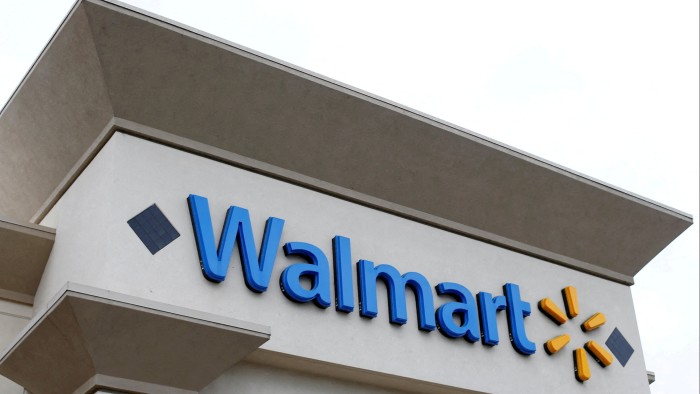Unlock the Editor’s Digest for free
Roula Khalaf, Editor of the FT, selects her favourite stories in this weekly newsletter.
Walmart has become the latest US company to end some of its diversity, equity and inclusion initiatives after being threatened with a conservative boycott ahead of the critical Black Friday shopping period.
Walmart said “every decision comes from a place of wanting to foster a sense of belonging, to open doors to opportunities for all our associates, customers and suppliers and to be a Walmart for everyone”.
The world’s largest retailer told “anti-woke” activist Robby Starbuck that it would stop considering race and gender when granting supplier contracts, cease training staff on racial equity and withdraw from the LGBT+ advocacy group Human Rights Campaign’s workplace ranking, Starbuck wrote on X late on Monday.
A person close to the company confirmed the decision.
Several companies including Ford, Boeing, Molson Coors, Caterpillar, Lowe’s and John Deere have rolled back some of their commitments to racial and gender equity this year, but Walmart, the largest US company with $648bn in global revenue in its most recent fiscal year, is the most prominent to do so. The company stepped back from DEI commitments after being contacted by Starbuck, a filmmaker who became a prominent conservative activist this summer by using his 700,000 followers on X to co-ordinate boycotts.
In a post on X, Starbuck called Walmart’s reversal “the biggest win yet for our movement to end wokeness in corporate America”.
US companies broadly pledged to tackle discrimination after the 2020 murder of George Floyd sparked a racial reckoning across the country, vowing to diversify their workforces and donate billions to non-profit organisations that focus on social justice.
But a growing backlash and litigation from conservative groups has led many to reverse course. Under pressure from Starbuck, Stanley Black & Decker and Brown-Forman, parent of Jack Daniel’s whiskey and Herradura tequila, also modified or eliminated diversity programmes.
Starbuck said he told Walmart executives last week that he planned to post about the company’s diversity work ahead of the busiest shopping season of the year, and had “productive conversations to find solutions”.
The retailer will stop using the phrase “diversity, equity and inclusion” and tighten its restrictions on LGBT+ themed products in its marketplace for third-party sellers. It will also not renew funding for its $100mn Center for Racial Equity after it expires in June 2025.
Starbuck in August told the Financial Times his goal was to make US companies politically neutral after too many succumbed to pressure from progressives.
As recently as July, a majority of Americans said they supported diversity efforts. Polling conducted by Morning Consult found 57 per cent approving of initiatives to recruit from minority groups.
Walmart has more than 5,000 stores in the US, including its Sam’s Club warehouse chain, and generated $532bn in revenue from domestic operations last year. The Arkansas-based company says 90 per cent of the US population lives within 10 miles of its stores.
The company said in its most recent annual report: “Retail can be a powerful engine for inclusive economic opportunity. We aim to advance belonging, diversity, equity and inclusion, and create opportunity for Walmart associates . . . our suppliers and workers in supply chains, and the communities in which we operate.”
In the US, 51.5 per cent of the company’s 1.6mn employees identify as people of colour, and 51.9 per cent are women, according to the company’s latest Belonging Report.
That report cited awards and recognitions from groups including the Human Rights Campaign and Fair360, a group which “help organisations develop fair and inclusive workplaces using benchmarking and best practices”, according to its website.
Starbuck wrote on X: “I have to give their executives major credit because this will send shockwaves throughout corporate America.”
Read the full article here




